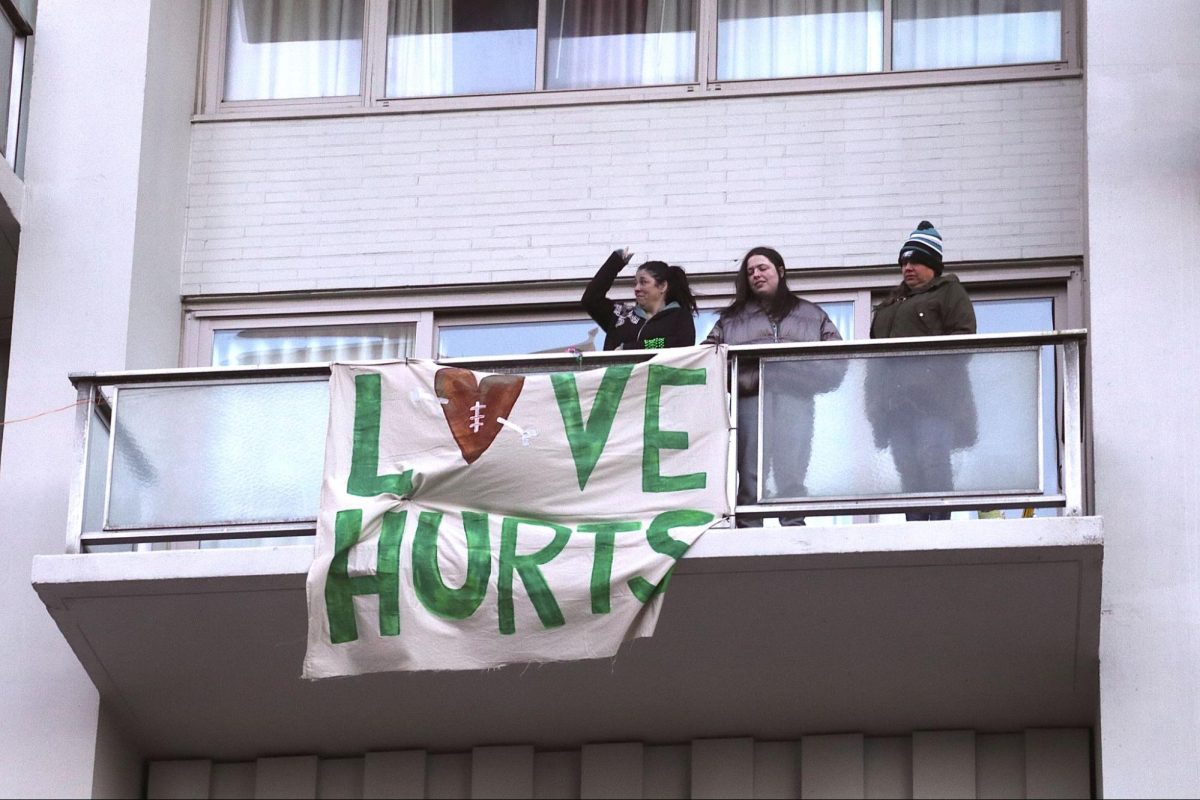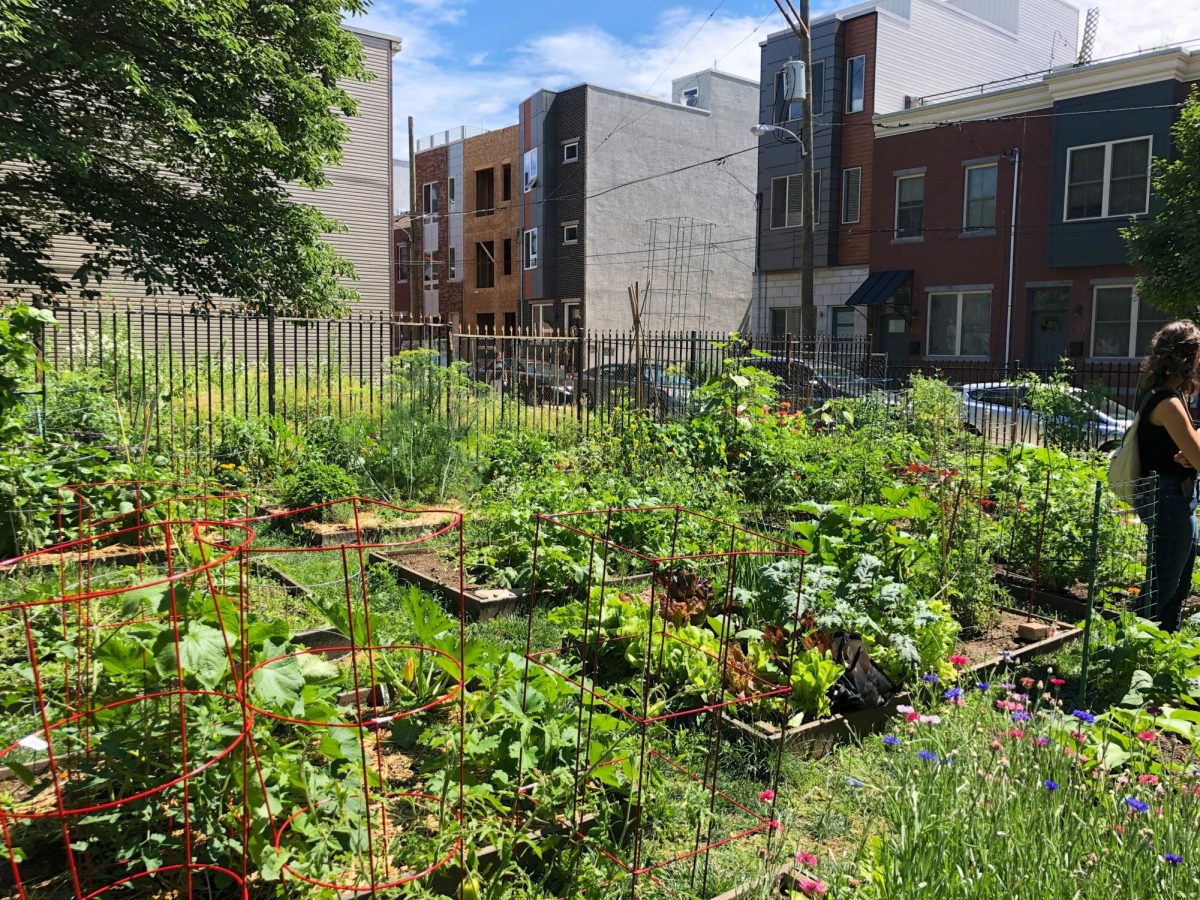Community gardens come in many shapes and sizes, many things can be grown in them, and they can be created pretty much everywhere! They are considered to be under the umbrella term “urban agriculture”. Individuals from a community come together (either in shared or individual plots/garden beds) to garden. But what’s the point?
The city of Philadelphia grapples with many inequalities/struggles: food security, gun violence, high crime rates, and unequal distributions of wealth in certain neighborhoods. According to the City of Philadelphia, there are “nearly 40,000 vacant lots” and there are only around 400 community gardens throughout the city. If we invest in our neighborhoods by creating more community gardens, potentially our struggles could be mitigated.
Philadelphia continues to be considered “America’s poorest big city”. “Out of the top 10 most populous cities across the United States, Philadelphia has the highest poverty rate,” according to an article published by WHYY. Poverty, unemployment, and low wages are the major causes of hunger and food insecurity. Food insecurity isn’t simply not having access to food, but it is described by the USDA as the lack of access to enough food for an active, healthy life. A report published by the USDA states that in 2022 44.2 million people lived in food-insecure households. The majority of those households were Black, Latino, and Hispanic, and those who struggled most were children. In Philadelphia alone, around 250,000 people lack access to enough food for an active, healthy life, according to data collected by Feeding America. The citizens of Philadelphia are food insecure due to long-upheld systemic discriminatory practices that the city has practiced for decades. The Pennsylvania Horticultural Society states, “Philadelphia’s urban farms and community gardens are critical to alleviating hunger and providing communities with greater access to fresh, healthy, and culturally appropriate foods.”
Along with alleviating the hardships that come with food insecurity, community gardens can also reduce crime and improve neighborhood safety. According to an article published by the Philadelphia Inquirer in 2022, “Residents near lots greened and maintained by PHS Landcare, a partnership between PHS and the City of Philadelphia, reported significantly lower perceptions of crime (which dropped by 37% after the lots were maintained), vandalism (down 39%), and safety concerns when going outside their homes (down 58%).” It wasn’t only the perception of crime that dropped, once the areas were ”greened” there was a decline in crime activity, “areas surrounding treated lots saw a 13% reduction in crime overall, a 29% drop in gun violence, and a 22% decrease in burglaries in neighborhoods below the poverty line.”
Additionally, working in a community garden supports and improves physical and mental health and wellness. According to an article published by the National Library of Medicine, “Community gardening has been reported to have positive effects on mental health due to the direct contact with natural environments it affords to community gardeners and its tranquil, restorative, and social nature [47,51,52]. Community gardening has also been discussed as a further mechanism to explain beneficial effects from nature for coping with daily stress.” Additionally, gardening aids in keeping gardeners active: according to BioMed Central, “Regular involvement in gardening may contribute to achieving recommended levels of physical activity, a well-established feature of healthy lifestyles.”
Last but certainly not least, community gardens build community because they require individuals in a community to engage with each other. The Pennsylvania Horticultural Society describes them as, “essential green spaces in a densely populated city where neighbors can enjoy nature and come together to build social connections and community”. Community gardens are responsible for beautifying the neighborhood in which it stands: according to the National Library of Medicine, “Community gardening fosters neighborhood ownership and civic pride, which in turn build a constituent base for a broader policy agenda.”
Two major challenges arise when creating community gardens: time and money. They require an extreme amount of physical effort and teamwork to keep up maintenance, which is great for community building. Community gardens can also be costly, especially when there are plans to purchase a vacant lot.
This goes more into Philadelphia’s funding. However, don’t let money rain on your radishes, most community gardens in Philadelphia are started by those who “reclaim” the lots. The only issue with lot reclaiming is they are vulnerable, an article published by BillyPenn at WHYY states, “As land has become more valuable in recent years, the risk of sale and redevelopment looms.”
There are many different ways to go about creating a community garden, it could be completely devoted to growing ingredients for salsa, or it could strictly be for flowers. Plots or raised garden beds could be allotted to individuals in a garden, or it can be completely collaborative.
If we begin to invest in our communities by implementing things like community gardens, we could benefit so much. We could be enjoying the fruits of our labors…Literally!
























